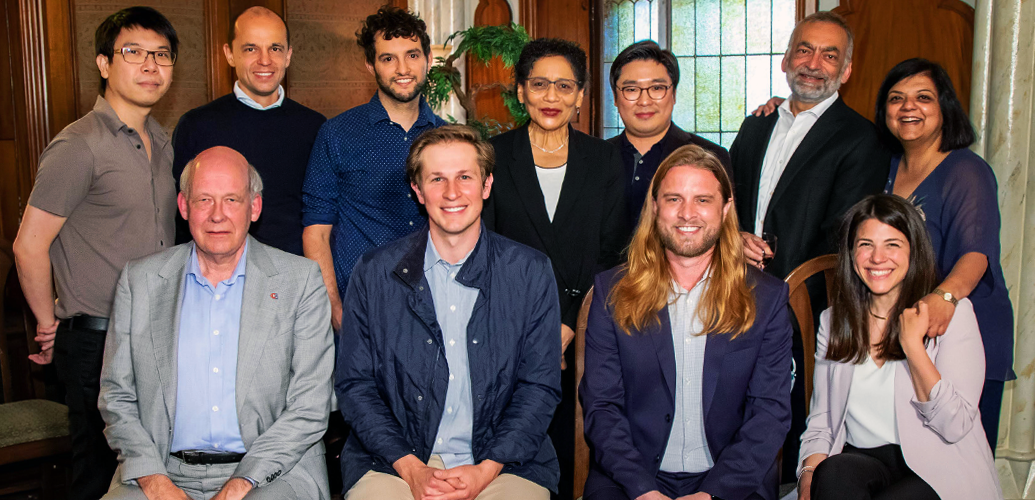I firmly believe that every student enters the classroom with the desire to actively engage and acquire valuable knowledge. To enhance their learning experience, I incorporate experiential elements in all my courses.
In my Organizational Behavior course, I integrate theory, in-class discussions, and brief activities. For instance, to demonstrate the concept of fairness in decision-making, I have students participate in an ultimatum game using groups of two, where they exchange skittles instead of money.
In my negotiation classes, each session features a live simulation designed to emphasize a specific learning objective, enabling students to internalize crucial lessons. Additionally, I organize the Master Negotiators Contest across all my negotiation courses to encourage students to practice their negotiation skills beyond the classroom setting.
My commitment to innovative teaching methods was recognized in 2022 when I received the “Innovation in Teaching Award” from McGill Desautels, and in 2021 when I was honored as “Professor of the Year” by McGill MUS.
Teaching Assistants
I had the chance to collaborate with amazing teaching assistants:
- Julia Cerone (2019 – 2023)
- Noor Khlief (2018)
- Adeola Odusanya (2017)
- Alyson Duff (2016)
- Jade Vinet (2014, 2015)
Bachelor of Commerce
MGCR 222 – Introduction to Organizational Behavior
Organizational Behavior is an interdisciplinary field that draws on Anthropology, Sociology, Economics, Psychology and Political Science to understand what people do, think, and feel in organizations. We will explore topics such as motivating and leading others, making effective decisions, and creating effective teams in organizations. Learning about these and other topics will help you function effectively in today’s complex environments, local or global, where information is incomplete, and there is no one right way to lead or manage. Therefore, deciding which approach or practice is best in a given situation requires you to think critically, work collaboratively, and act imaginatively yet realistically. Developing these abilities, which link directly to your role as future organizational members, managers and leaders, is our goal in the Introduction to Organizational Behavior course.
ORGB 325 – Negotiations and Conflict Resolution
Negotiation is the art and the science of creating good agreements between parties. As such, negotiation is an essential part of your academic, professional and personal lives. The overarching goal of this course is for you to understand the theory and practice of negotiation, and how to use negotiation to reach your personal and professional goals. Negotiating skills are best acquired through practice. Thus, the class environment is experiential in nature, whereby you will be introduced to negotiation through applied learning activities. You are expected to take charge of your own learning in this class. You are expected to prepare your assignments before class, learn the required materials, actively participate in class activities and discussions to apply what you have learned, and provide constructive feedback to your peers. What you gain from this class will be directly related to the effort you put in.
Master of Business Administration
ORGB 633 – Managerial Negotiations
Negotiating is a critical managerial skill. The purpose of this course is to allow students to learn to be more effective negotiators. The class environment used to accomplish this goal includes many exercises, personality inventories, and cases. The focus of the course will be on the processes of bargaining and the emphasis is “hands on” learning, although theories of negotiation and research examining negotiation will also be covered. Each student will have a great deal of control over how much he or she will develop into a better negotiator as a result of participating in this course.
Graduate Certificate in Healthcare Management
ORGB-644 – Managerial Negotiations in Healthcare
In the context of health care, you continually negotiate your way through life though you often don’t recognize that you are. We negotiate with employers, patients, other doctors, nurses, technicians, pharmacists, and suppliers, as well as significant others, friends, and others. We negotiate over the amount we will pay and be paid, the work we’ll do, the credit we will receive, when our needs will be met, who will work with us, etc. Negotiation is an art and science. When done well it facilitates agreement between interdependent parties that allow them to maximize their outcomes. When done badly, it is a recipe for ongoing conflict and bad outcomes for all parties. In this course, we will examine the fundamentals of negotiation and dispute resolution to better understand the dynamics that lead to successful negotiation outcomes. You will learn both the theory and processes of negotiation so that you can negotiate successfully in a healthcare setting, as well as a variety of other settings. A basic premise of the course is that as a doctor, an employee, and an employer, you will need analytical skills to create optimal solutions to problems and a broad array of negotiation skills to get these solutions identified, accepted, and implemented. In this course, you will actively develop these skills by simulating a variety of negotiations, and afterward, analyzing the outcomes and processes of those negotiations to find areas for improvement.
Doctoral Program in Management
ORGB 705 – Doctoral Seminar in Behavioral Sciences
The purpose of this PhD seminar is to familiarize students with the theories, methods, and approaches that characterize micro organizational behavior (micro OB), the study of individuals in organizations. We will explore classic and contemporary theories, enduring controversies, and emerging empirical research on a variety of major topics in OB. This PhD seminar will help students planning on a career in OB to kick-start their own research agenda. Students planning a career in a related discipline will better understand of the field of OB, and will be able to integrate approaches and insights from OB to their own research agenda.
